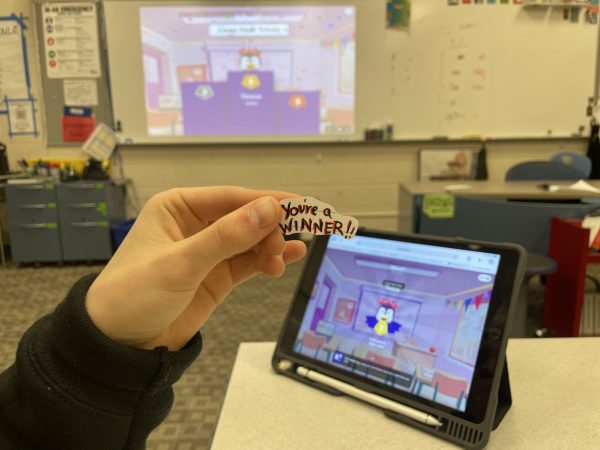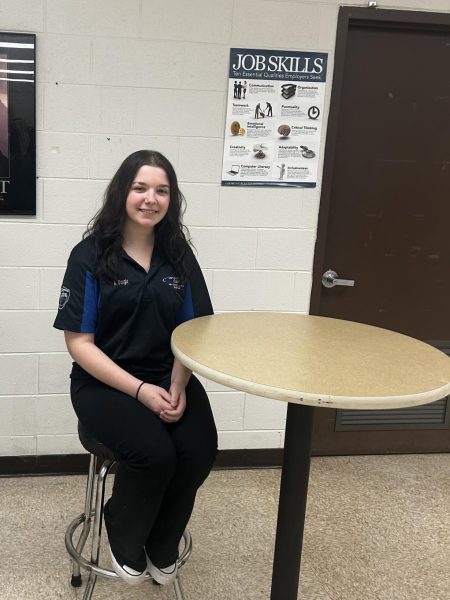From textbooks to gradebooks

Photo by Photo used with permission of Alex Li
Alex Li, who has been teaching for Fenghua Academy for two years, is pictured with his volunteer group, who taught English to people in China.
Alex Li, junior, is not only a full time student at the high school, he also teaches teaches a Mandarin class at Fenghua Academy, the Chinese school hosted in the high school every Sunday. Before that, he was a student at the school.
“I have been a student at Chinese school since they started,” Li said. “I started in their kindergarten class when I was about 4 or 5, and took Chinese classes there formally up until 8th grade.”
He has been teaching an introductory Mandarin class for about two years, and has been part of the school for about ten years.
Q: How did you get into teaching?
A: At the Chinese school, there is a really good high school volunteering program, where a certain number of students can teach some classes. We have English for Chinese grand parents who don’t know English at all, so we have high schoolers teach them English. We look for high school volunteers to help with grading and teaching classes, so I signed up as a sophomore after having taken classes there up until freshman year. They were looking for someone to teach, so I said I would. They had me work with the teacher who used to teach the class. He was a graduating senior, so I worked with him for two classes and he gave me feedback and input.
Q: What do you like about teaching the class?
A: It’s a lot of fun, and really interesting. I’ve been taking Chinese since I was young, and it was actually my first language. It’s kind of a different perspective trying to teach it from a point of view where you have kids coming in who have no Chinese background whatsoever. If their parents don’t speak it at home, then it’s harder.
Q: Why is it harder?
A: It’s hard because you can’t really ingrain it in them. When you’re young, you just hear a language and you learn it. But as you grow older, you have to translate the concepts you already know in English into Chinese. You have to overcome the barriers you already have from learning English.
Q: What kind of barriers would that be?
A: A lot of things like word placement, or things like subject-verb order. In Chinese the orders of our subjects and verbs, like in the foreign languages you learn at the high school, are very different from those you learn in English. The overall concept that one character can mean a bunch of words is kind of daunting to new students. Overall, the hardest part of Chinese is the tones. Chinese is a tonal language. Saying the same sound in a different tone can drastically change the meaning of a sentence. That is the hardest for students to pick up, is that idea that you need to change the way your voice sounds to convey the correct meaning.
Q: How old are the students you teach?
A: One of my students is 5, another one is 9. My two students in previous years were two brothers, 6 and 7. It is really just any age, but it is supposed to be a beginner level class. It is supposed to be a transition. Your goal is to transition from this to learning in a normal Chinese classroom, where you can understand the language a little more easily and get used to hearing Chinese.
Q: Is it only Chinese people that take these classes?
A: No, anyone can enroll. I’ve had two students who actually speak Polish rather than English who were my students last year. Now they are currently enrolled in a first grade standard Chinese class. I have another student that is Chinese, but his parents do not speak Chinese with him at all. Another one is a mix of Chinese and Filipino, and he has no Chinese background either. Anyone is welcome to sign up for the class.

The Incredible Jim has been in the journalism program for 4 years and is in his second year on staff. Jim plays guitar and plays for the varsity tennis...










